- Clone
- 15C4 (See other available formats)
- Regulatory Status
- RUO
- Other Names
- OLR1, LOX1, LOXIN, SLOX1, CLEC8A, SCARE1
- Isotype
- Mouse IgG2a, κ
- Ave. Rating
- Submit a Review
- Product Citations
- publications
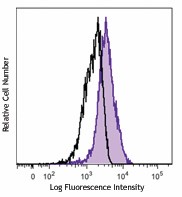
-

GM-CSF-stimulated (3 days) human peripheral blood monocytes were stained with LOX-1 (clone 15C4) PE (filled histogram) or mouse IgG2a, κ PE isotype control (open histogram).
| Cat # | Size | Price | Quantity Check Availability | Save | ||
|---|---|---|---|---|---|---|
| 358603 | 25 tests | 123€ | ||||
| 358604 | 100 tests | 288€ | ||||
Lectin-like oxidized LDL receptor 1 (LOX-1) also known as CLEC8A is a 31 kD single pass type II transmembrane protein and member of the C-type lectin superfamily. LOX-1 is a scavenger receptor and is involved in endocytosis, phagocytosis and cytokine production. CLEC8A is expressed by endothelial cells, smooth muscle cells, platelets, fibroblasts, macrophages, and is upregulated by inflammatory and oxidative stimuli. LOX-1 recognizes numerous ligands including lipoproteins, apoptotic cells heat shock proteins, C-reactive protein and oxidized LDL. LOX-1 is implicated in atherosclerosis and vascular inflammation.
Product DetailsProduct Details
- Verified Reactivity
- Human
- Antibody Type
- Monoclonal
- Host Species
- Mouse
- Immunogen
- LOX-1 ectodomain: Fc fusion protein
- Formulation
- Phosphate-buffered solution, pH 7.2, containing 0.09% sodium azide and BSA (origin USA)
- Preparation
- The antibody was purified by affinity chromatography and conjugated with PE under optimal conditions.
- Concentration
- Lot-specific (to obtain lot-specific concentration and expiration, please enter the lot number in our Certificate of Analysis online tool.)
- Storage & Handling
- The antibody solution should be stored undiluted between 2°C and 8°C, and protected from prolonged exposure to light. Do not freeze.
- Application
-
FC - Quality tested
- Recommended Usage
-
Each lot of this antibody is quality control tested by immunofluorescent staining with flow cytometric analysis. For flow cytometric staining, the suggested use of this reagent is 5 µl per million cells in 100 µl staining volume or 5 µl per 100 µl of whole blood.
- Excitation Laser
-
Blue Laser (488 nm)
Green Laser (532 nm)/Yellow-Green Laser (561 nm)
- Application Notes
-
Additional reported applications (for the relevant formats) include: immunofluorescent staining of acetone-fixed frozen human skin sections1.
-
Application References
(PubMed link indicates BioLegend citation) -
- Li D, et al. 2012. J. Exp. Med. 209:109. (IHC)
- Product Citations
-
- RRID
-
AB_2562180 (BioLegend Cat. No. 358603)
AB_2562181 (BioLegend Cat. No. 358604)
Antigen Details
- Structure
- Single pass, type II, transmembrane protein, 31 kD, homodimer, member of the C-type lectin superfamily.
- Distribution
- Endothelial cells, smooth muscle, platelets, fibroblasts, macrophages; Upregulated by inflammatory and oxidative stimuli
- Function
- Scavenger receptor, involved in endocytosis, phagocytosis and cytokine production
- Ligand/Receptor
- Recognizes numerous ligands including lipoproteins, apoptotic cells, heat shock proteins, C-reactive protein, oxidized LDL
- Cell Type
- Endothelial cells, Platelets, Fibroblasts, Macrophages, Dendritic cells
- Biology Area
- Cell Adhesion, Cell Biology, Immunology, Innate Immunity
- Molecular Family
- Adhesion Molecules
- Antigen References
-
1. Yin Y, et al. 2013. Eur. J. Cell Biol. 92:150.
2. Khaidakov M. and Mehta JL. 2012. PLoS One. 7:e46973.
3. Sawamura T, et al. 2012. Curr. Opin. Lipidol. 23:439.
4. Lin FY, et al. 2011. J. Immunol. 186:4405.
5. Parlato S, et al. 2010. Blood 115:1554. - Gene ID
- 4973 View all products for this Gene ID
- UniProt
- View information about LOX-1 on UniProt.org
Related Pages & Pathways
Pages
Related FAQs
- What type of PE do you use in your conjugates?
- We use R-PE in our conjugates.
Other Formats
View All LOX-1 Reagents Request Custom Conjugation| Description | Clone | Applications |
|---|---|---|
| PE anti-human LOX-1 | 15C4 | FC |
| Purified anti-human LOX-1 | 15C4 | FC,IHC-F |
| APC anti-human LOX-1 | 15C4 | FC |
| Brilliant Violet 421™ anti-human LOX-1 | 15C4 | FC |
| TotalSeq™-A0591 anti-human LOX-1 | 15C4 | PG |
| TotalSeq™-C0591 anti-human LOX-1 | 15C4 | PG |
| TotalSeq™-B0591 anti-human LOX-1 Antibody | 15C4 | PG |
Customers Also Purchased
Compare Data Across All Formats
This data display is provided for general comparisons between formats.
Your actual data may vary due to variations in samples, target cells, instruments and their settings, staining conditions, and other factors.
If you need assistance with selecting the best format contact our expert technical support team.
-
PE anti-human LOX-1
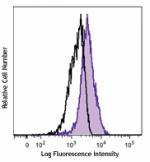
GM-CSF-stimulated (3 days) human peripheral blood monocytes ... -
Purified anti-human LOX-1
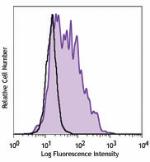
GM-CSF-stimulated (3 days) human peripheral blood mononuclea... -
APC anti-human LOX-1
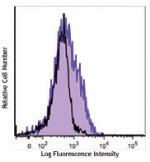
GM-CSF-stimulated (3 days) human peripheral blood monocytes ... -
Brilliant Violet 421™ anti-human LOX-1
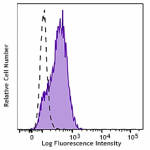
GM-CSF-stimulated (3 days) human peripheral blood monocytes ... -
TotalSeq™-A0591 anti-human LOX-1
-
TotalSeq™-C0591 anti-human LOX-1
-
TotalSeq™-B0591 anti-human LOX-1 Antibody
 Login / Register
Login / Register 









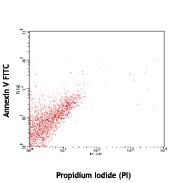
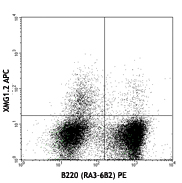
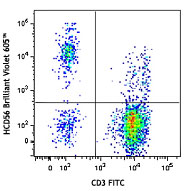
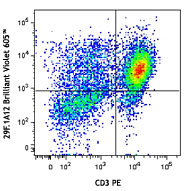



Follow Us